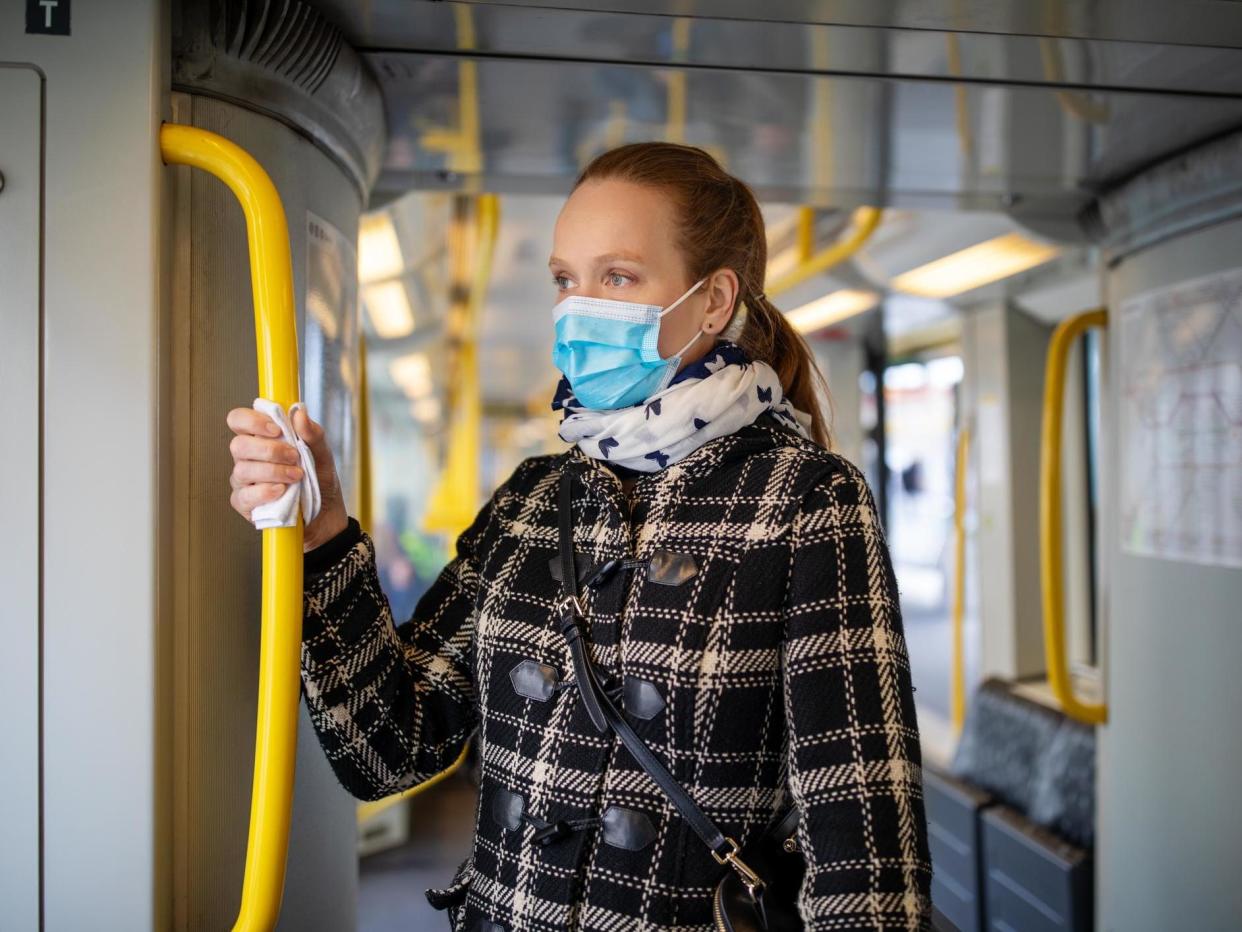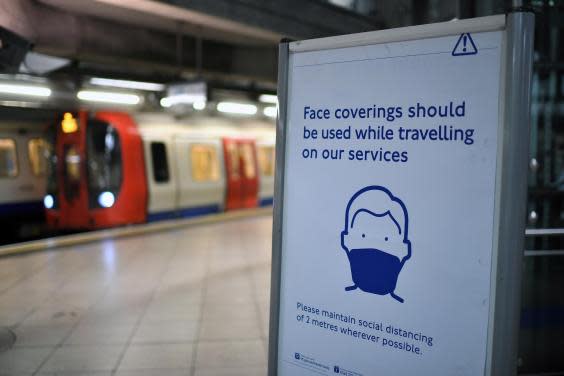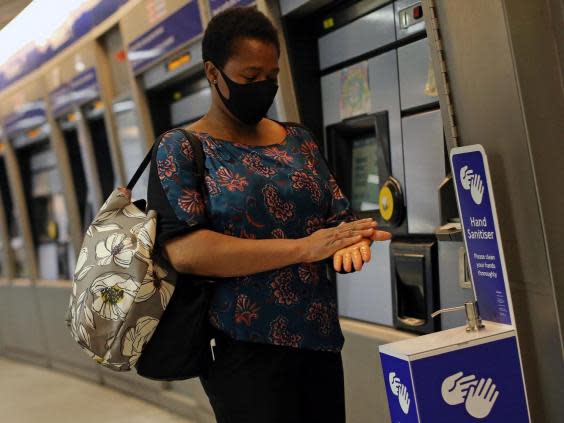UK face mask rules: Do I need to wear a covering on public transport?

Anyone travelling on public transport in England must wear a face covering from Monday 15 June.
From 17 July everyone is permitted to use public transport - an update given by Boris Johnson on Friday, in a bid to relax lockdown rules even further.
Since the coronavirus outbreak began there has been significant debate as to whether face masks and face coverings are effective at containing or preventing the spread of Covid-19.
In May, the government advised that people in England should wear face coverings in crowded or "enclosed public spaces”, such as in shops and on public transport, but it was not made mandatory.
However, on 4 June officials confirmed that face coverings would become compulsory in England when using public transport, in anticipation of further relaxing of coronavirus measures.
On 14 July, health secretary Matt Hancock also announced that face coverings will become compulsory in shops in England from 24 July. Anyone who fails to do so could face fines of up to £100.
The move will bring England in line with Scotland, which made face coverings mandatory in shops on 10 July.
So who needs to wear a face covering and on what types of transport are they necessary? Here’s everything you need to know.
What are the latest rules surrounding face coverings in the England?
It is now compulsory for anyone travelling on public transport in England to wear a face covering.
Speaking at the daily Downing Street press conference, transport secretary Grant Shapps said the move, which comes into force on 15 June, has been designed to prevent an upsurge in coronavirus infections as the country moves to the next stage of lockdown relaxation, with non-essential shops allowed to reopen.
Where exactly do I need to wear a face covering?
In light of the new rules, everyone will now be required to wear a face covering on public transport, with some exemptions.
The government has also advised that people wear face coverings in a number of other enclosed public spaces where social distancing may not be possible, such as shops.

“We need to ensure every precaution is taken on buses, trains, aircraft, and on ferries,” Mr Shapps said.
The new rules do not include school transport, taxis and private hire vehicles. However, Uber has made face coverings compulsory for all passengers and drivers.
Wearing a facemask does not substitute for two-metre social distancing, which should still be observed in public wherever possible.
Who needs to wear one?
Anyone using public transport should wear a face covering. However, Mr Shapps stated that very young children, disabled people, or those who have breathing difficulties and respiratory problems that may be exacerbated by wearing a face covering, are exempt from the new regulations.
Frontline staff such as bus drivers will also be required to wear face coverings. The compulsory rules do not apply in Scotland, Wales or Northern Ireland, but these governments do recommend people cover their faces in places where social distancing is difficult.
Mr Shapps said the government is working with devolved administrations to try to make the change nationwide.
What will happen if I don’t wear a face covering?
Wearing a face covering would be made a “condition of travel” on public transport, Mr Shapps said. The transport secretary said that fines will be imposed on those who fail to wear them.
Under the changes, operators will be able to stop passengers who refuse to follow the rules from travelling and direct them to leave services.
The police and Transport for London authorised personnel will also be able to issue fixed penalty notices of £100, or £50 if paid in 14 days.
More than 3,000 extra staff including police officers are being deployed at stations to make sure people comply.
What is the World Health Organisation’s advice on face coverings?
Following the government announcement, the World Health Organisation (WHO) updated its guidelines on 5 June to recommend that governments ask everyone to wear fabric face masks in public areas where there is a risk of transmission of Covid-19, in order to help reduce the spread of the pandemic disease.

However, it has stressed that face masks are only one of a range of tools that can reduce the risk of viral transmission, and should not give a false sense of protection.
Everyone should continue to wash their hands frequently and not touch their face at all times, whether or not you are wearing a face covering. Social distancing measures should continue to be observed in public where possible.
What is the difference between a face covering and a face mask?
The government has stressed that face coverings should not be confused with medical face masks or respirators, which should be reserved for medical professionals and other frontline workers.
Face coverings are typically made of cloth and are intended to block bigger droplets before they become aerosolised.
“That doesn’t mean surgical masks, which we must keep for clinical settings,” Mr Shapps said. “It means the kind of face covering you can easily make at home.”
Where can I get one?
A face covering can be easily made at home from a T-shirt or even a sock either by cutting the mask to size or sewing fabric together to cover your mouth and nose comfortably. You can find out how to make one at home here.
You can also purchase a range of patterned and fitted face coverings online from a number of handmade and professional retailers. Find out some of the places you can buy coverings here.
In the coming days, hundreds of thousands of free coverings will be handed out at railway stations.
The government stressed people should not purchase medical face masks. Face coverings should be washed after use as soon as possible.


